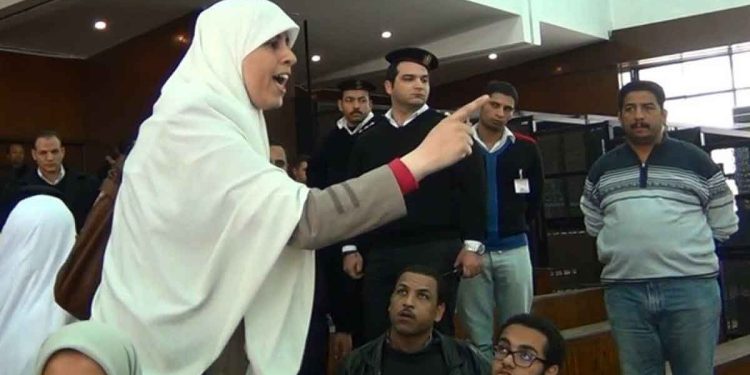The health of the political detainee, Aisha Al-Shater, has further deteriorated recently, as she developed pernicious anaemia and spinal cord failure during her solitary confinement in Al-Qanater prison since November 2018. She suffered from deliberate medical negligence, which is a policy of slow killing practised by the current Egyptian authorities.
According to human rights reports, Aisha Al-Shater has been subjected to enforced disappearance for three weeks. She has been subjected to serious violations since the first moments of her arrest inside the National Security headquarters in Abbasiya and in Al-Qanater Prison, including physical torture by beating and electric shocks, blindfolding, in addition to psychological abuse and ill-treatment.
Since her transfer to Al-Qanater Prison, Al-Shater has been denied the right to receive family visits or communicate with them at all. She was held in solitary confinement for more than a year and deprived of winter clothes despite the freezing cold of her cell, which was also searched frequently without a warrant and had her personal belongings confiscated. She was also deprived of medical care, and she was handcuffed inside Al-Qasr Al-Ainy Hospital.
The case in which Al-Shater is being tried consists of 31 defendants, 14 of whom are detained, including several activists, as well as Hoda Abdel Moneim, a cassation lawyer and former member of the National Council for Human Rights, Ezzat Ghoneim, a human rights lawyer and executive director of the Egyptian Coordination for Rights and Freedoms, and lawyer Mohamed Abu Huraira (husband of Aisha El-Shater), and others.
The Supreme State Security Prosecution charged the defendants with leading, joining, financing and supporting the Muslim Brotherhood, while accusing four of them of documenting and publishing human rights violations on social media and deliberately publishing false news about the internal affairs of the country, disturbing public security, spreading fear amongst people, and harming public and national interests.






























